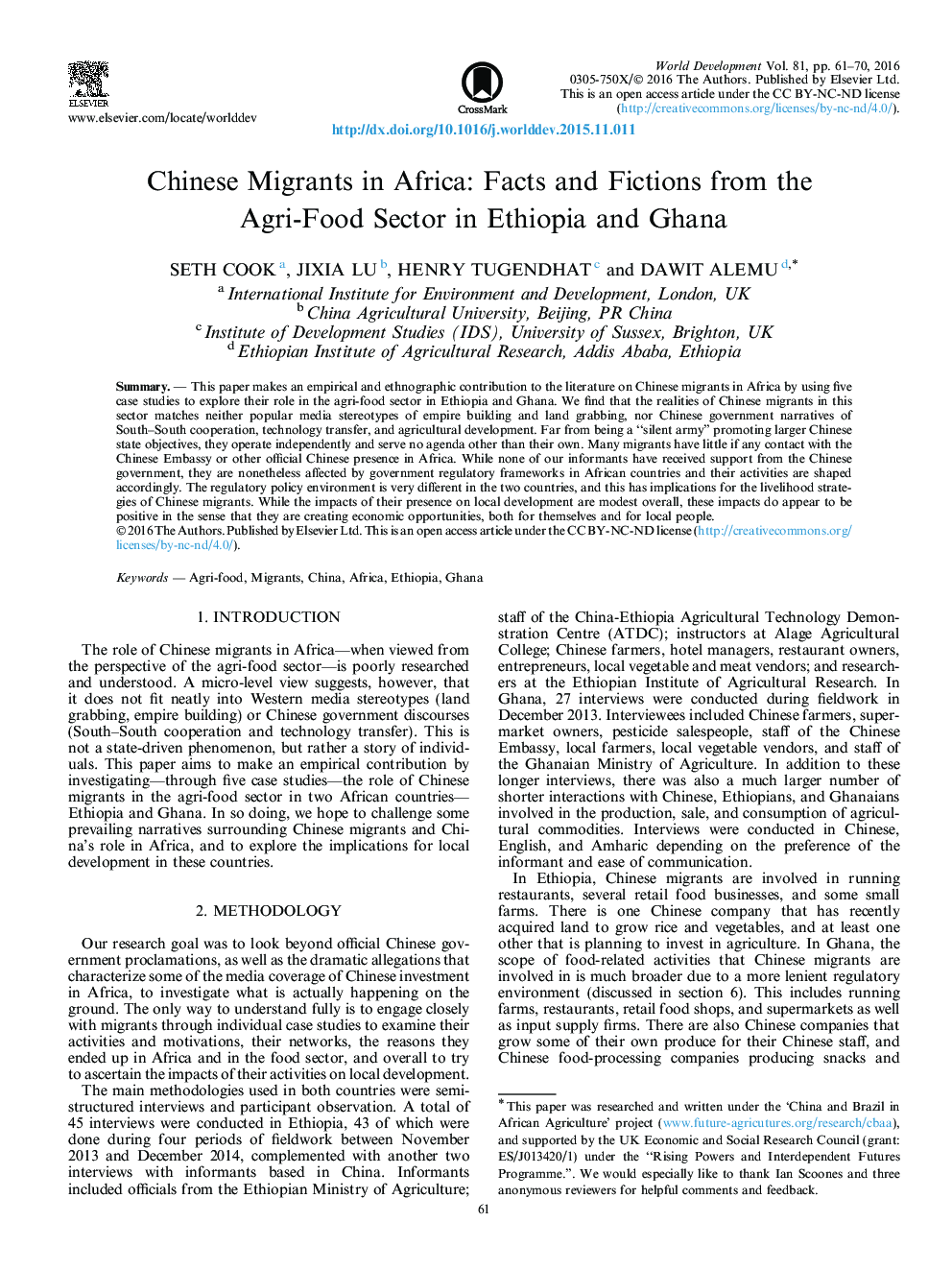| Article ID | Journal | Published Year | Pages | File Type |
|---|---|---|---|---|
| 988291 | World Development | 2016 | 10 Pages |
SummaryThis paper makes an empirical and ethnographic contribution to the literature on Chinese migrants in Africa by using five case studies to explore their role in the agri-food sector in Ethiopia and Ghana. We find that the realities of Chinese migrants in this sector matches neither popular media stereotypes of empire building and land grabbing, nor Chinese government narratives of South–South cooperation, technology transfer, and agricultural development. Far from being a “silent army” promoting larger Chinese state objectives, they operate independently and serve no agenda other than their own. Many migrants have little if any contact with the Chinese Embassy or other official Chinese presence in Africa. While none of our informants have received support from the Chinese government, they are nonetheless affected by government regulatory frameworks in African countries and their activities are shaped accordingly. The regulatory policy environment is very different in the two countries, and this has implications for the livelihood strategies of Chinese migrants. While the impacts of their presence on local development are modest overall, these impacts do appear to be positive in the sense that they are creating economic opportunities, both for themselves and for local people.
